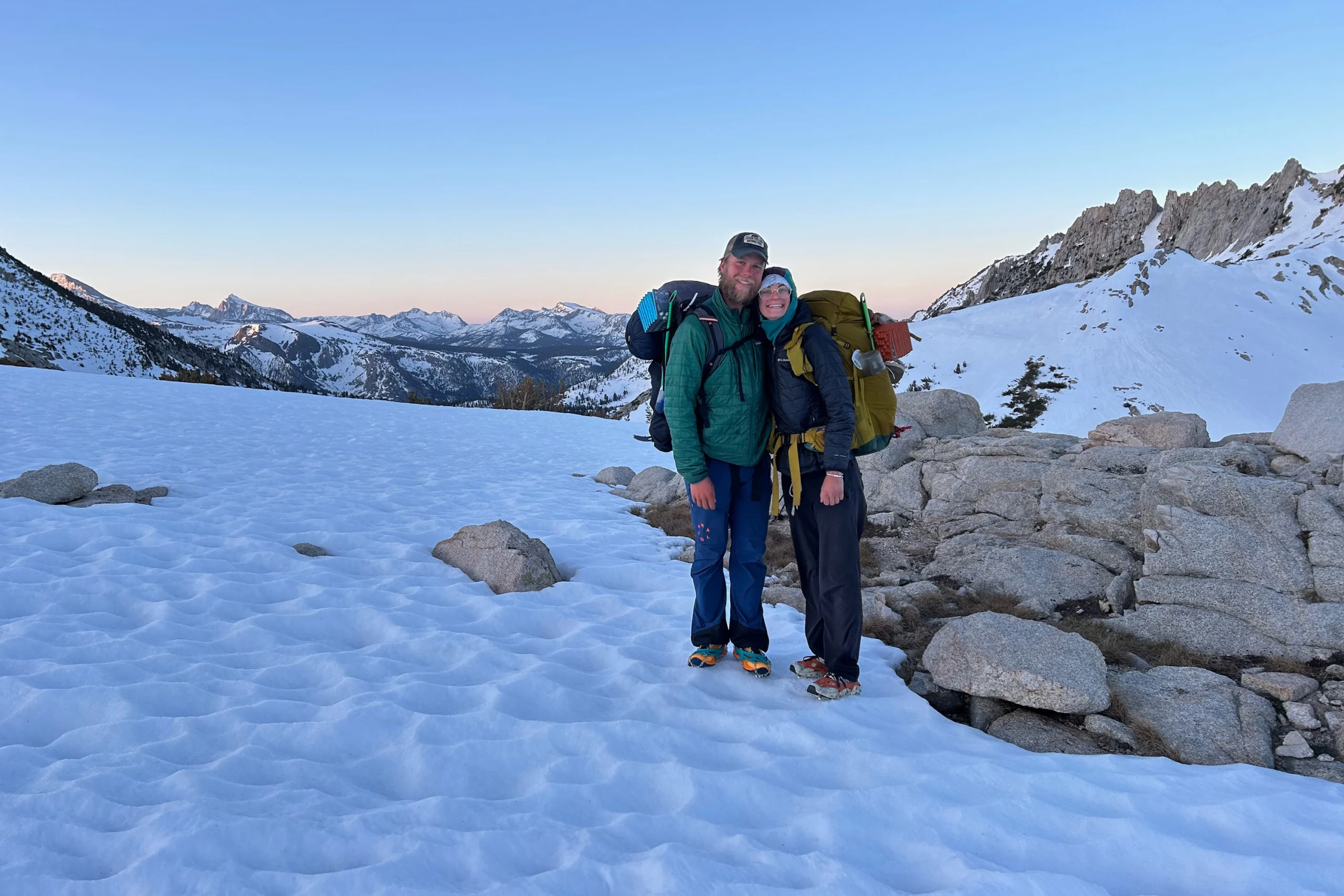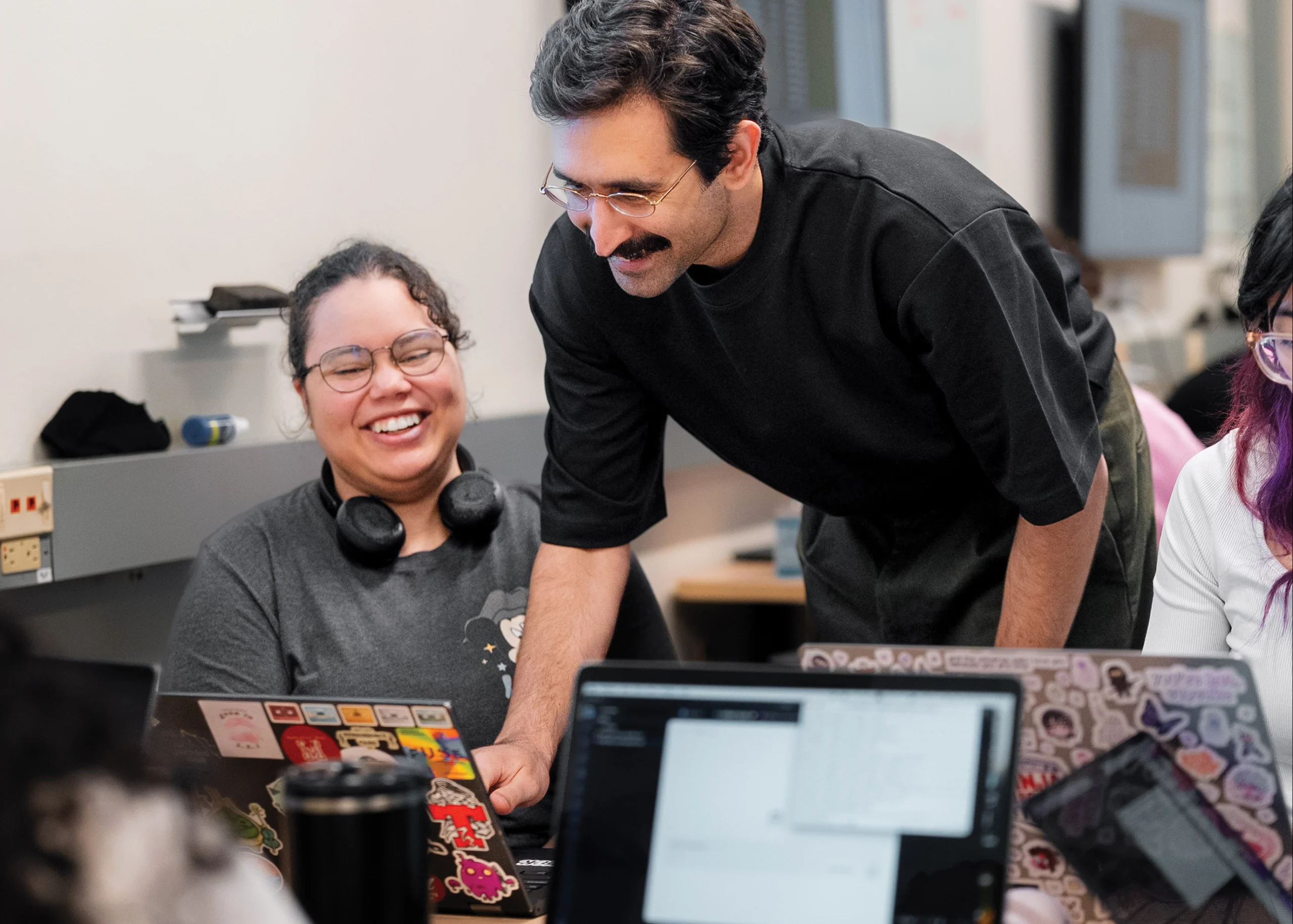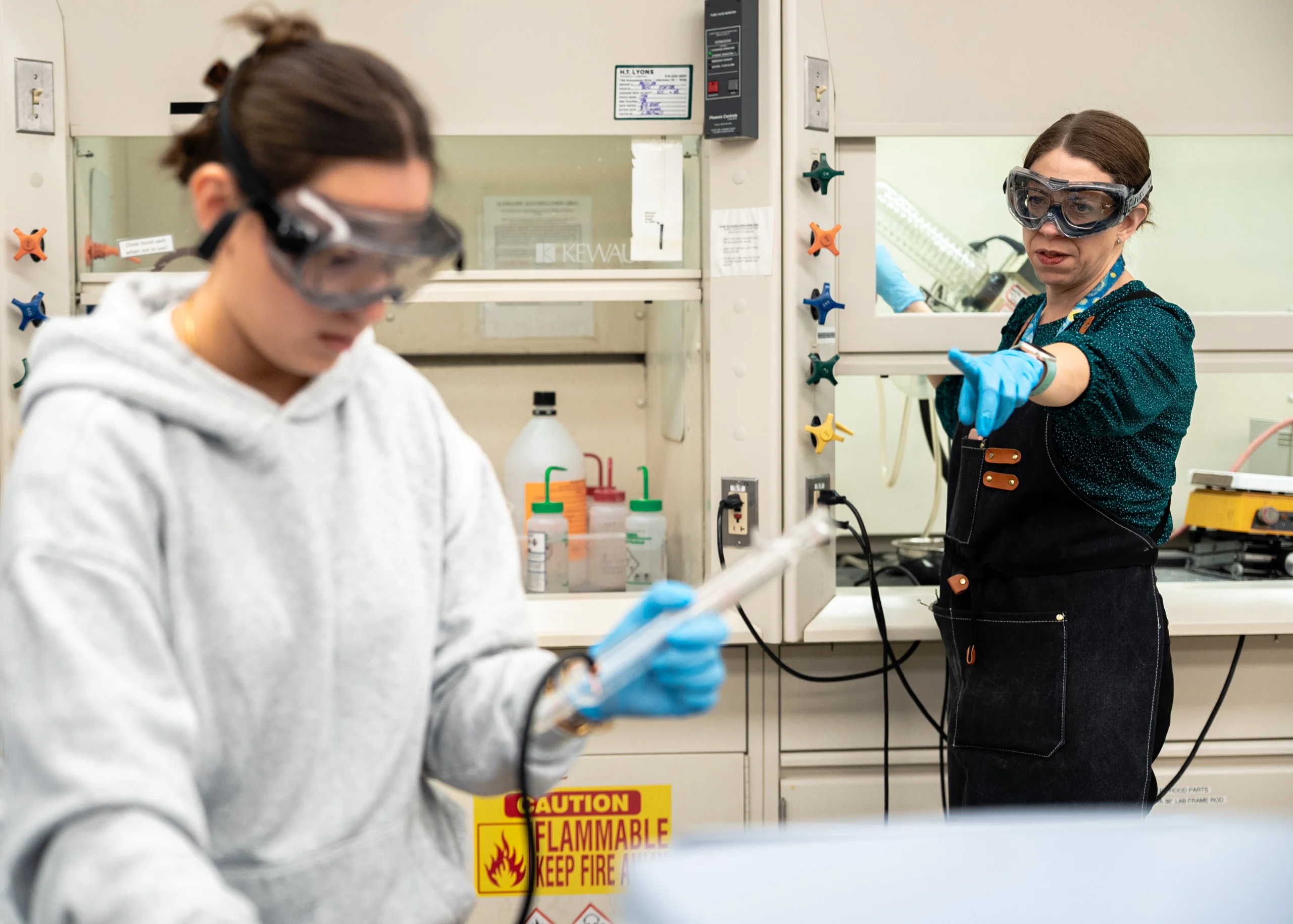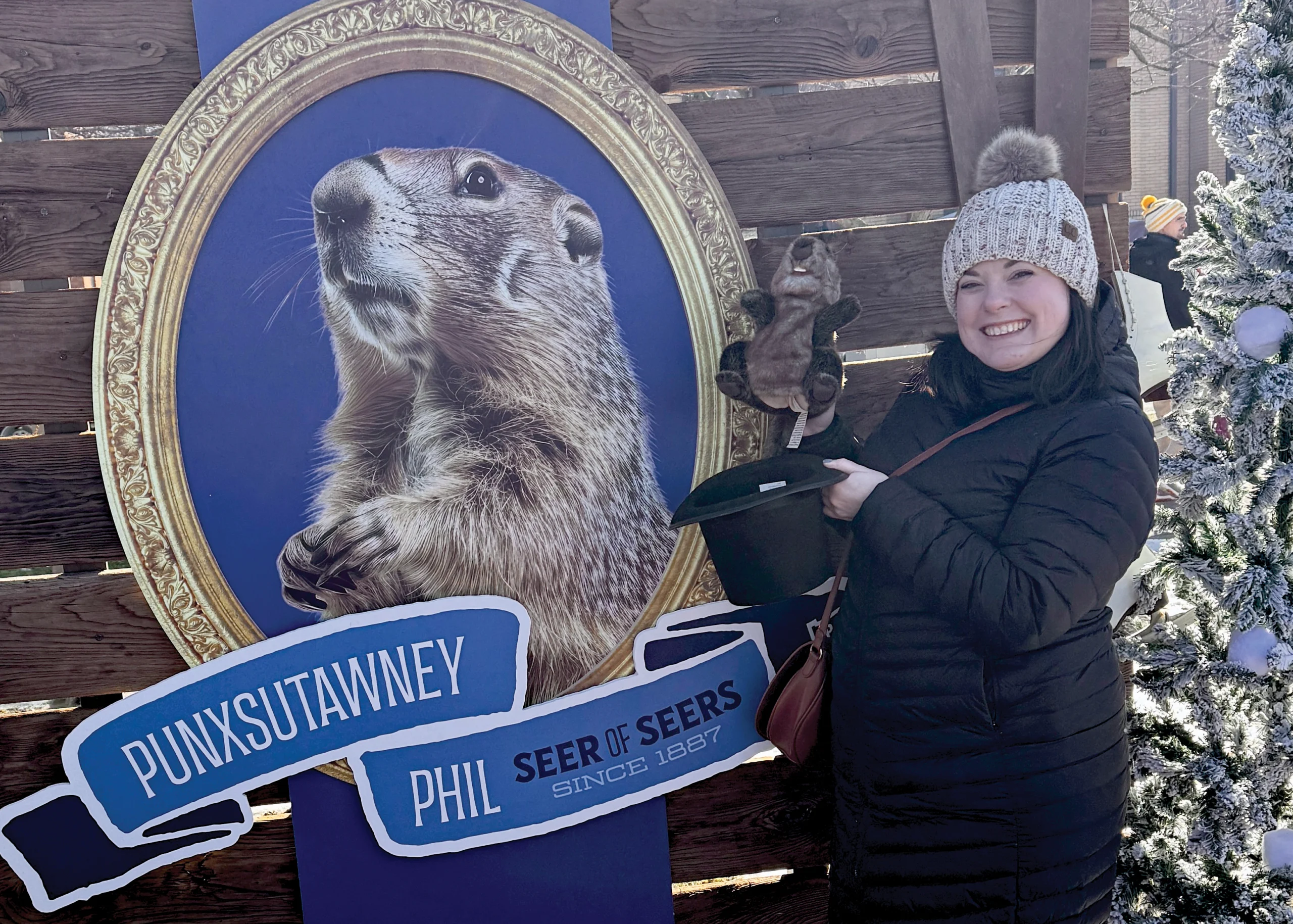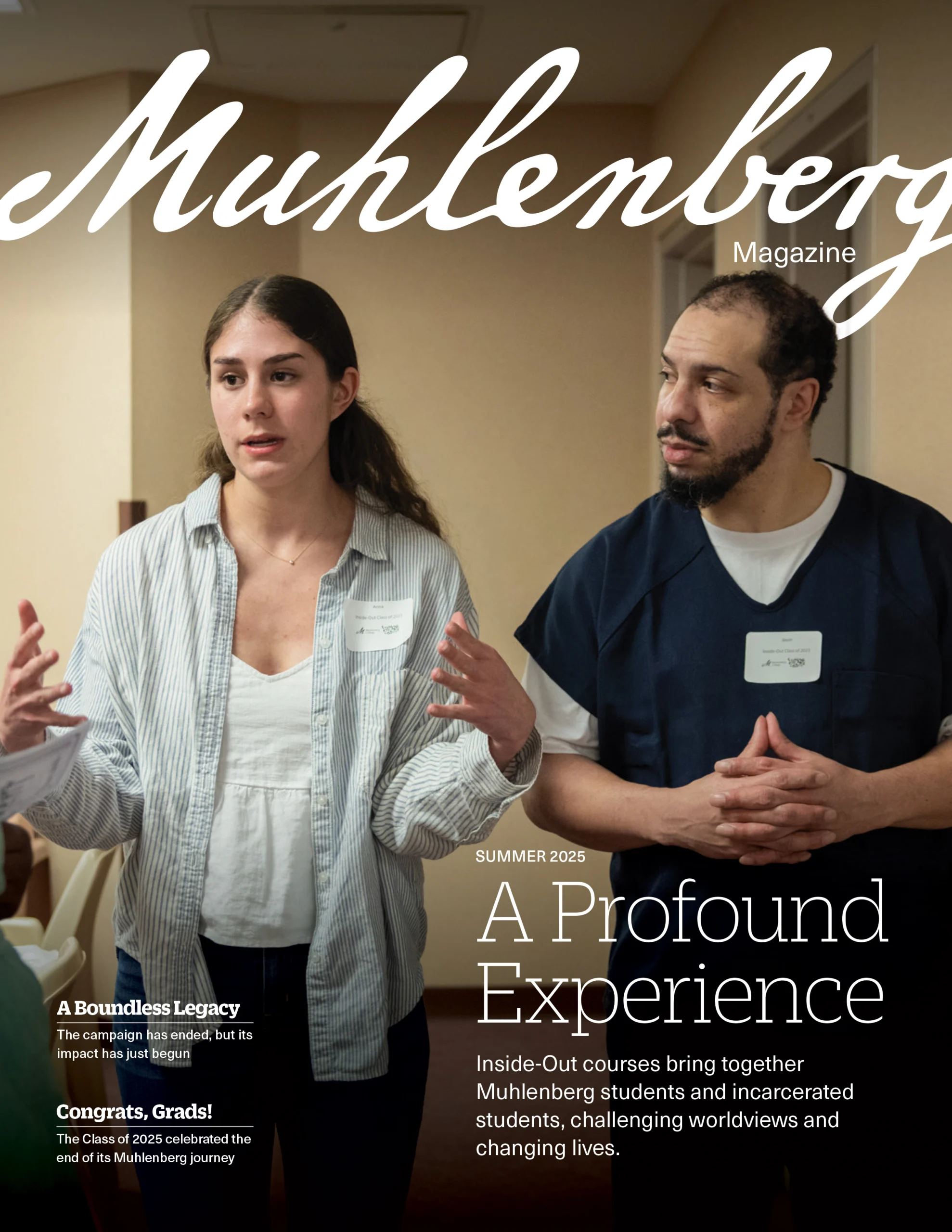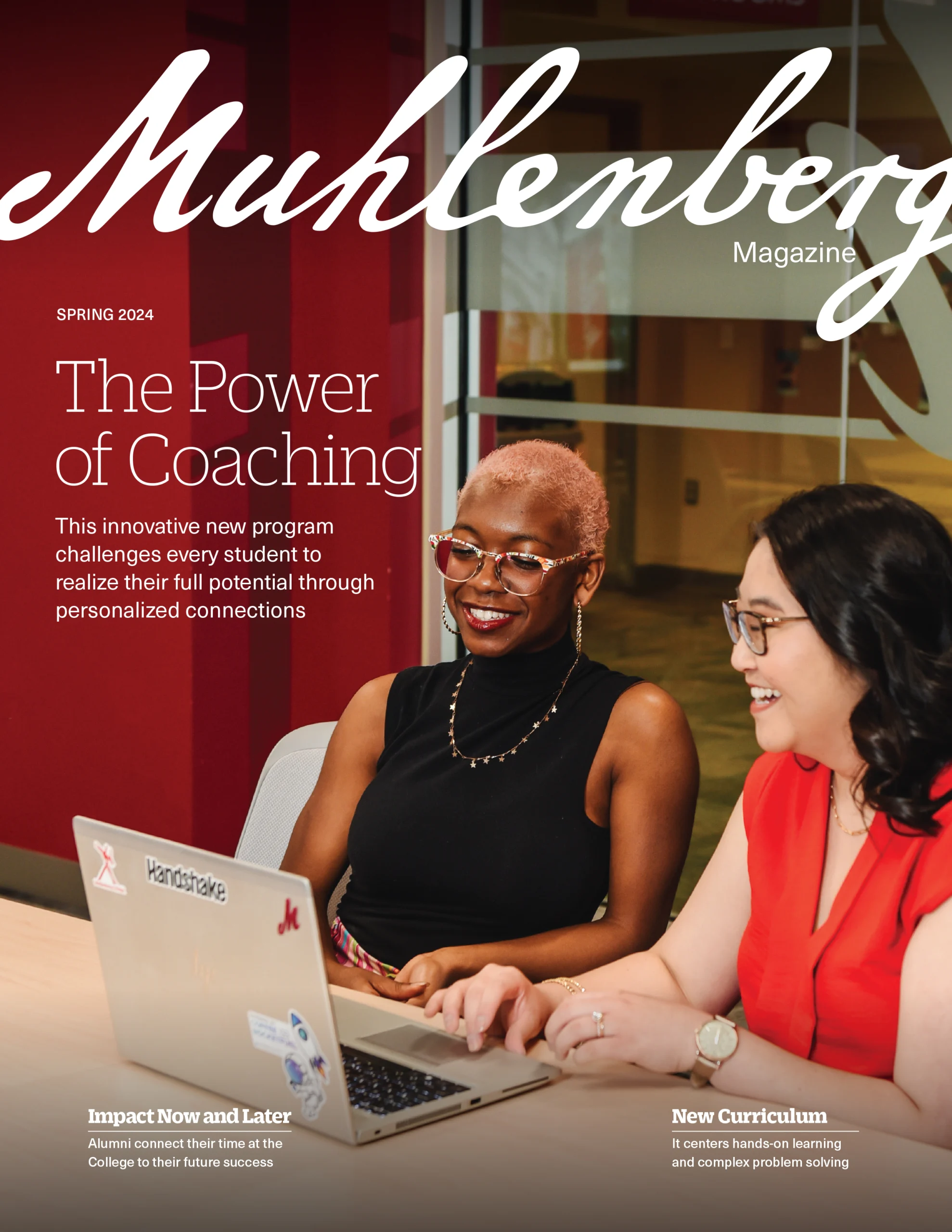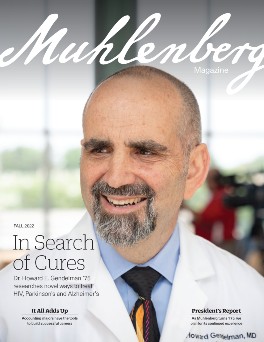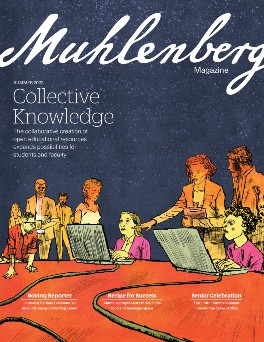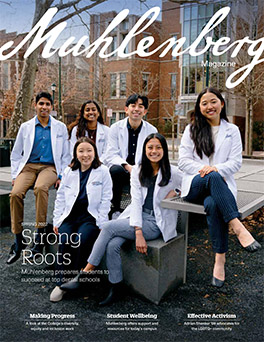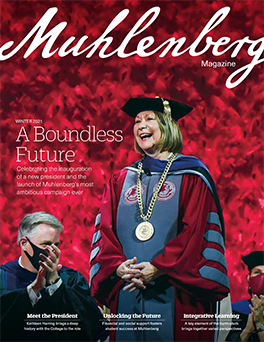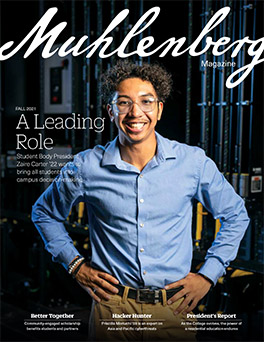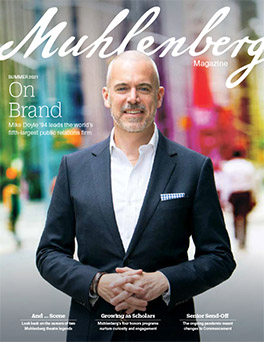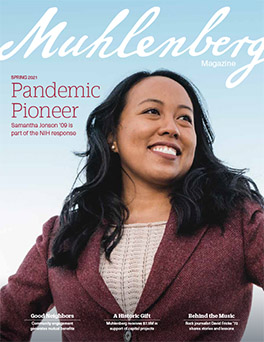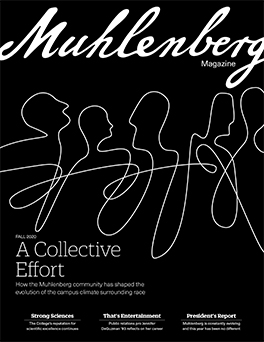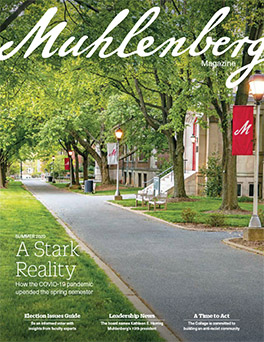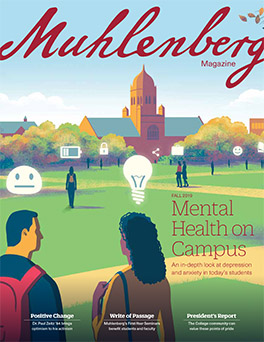
Joshua Barnett ’21 Is Programmed to Succeed
Barnett, who was a computer science major, makes an impact as one of the few software engineers at the biotech startup he joined after graduating.
Joshua Barnett ’21 discovered a passion for computer science at Muhlenberg. He entered college intending to study math, but after taking an introductory computer science course, he was hooked.
“There were math aspects to it, and it could be used in basically any field,” says Barnett, a computer science major and mathematics minor who is a software engineer at the biotech startup AtlasXomics Inc. “Engineers are needed everywhere, so that was really cool and exciting.”
Barnett isn’t a biologist himself, but, among other things, he works on software that allows biologists to create visual maps of tissues to show where genes, cells and/or different proteins can be found in each sample. This can allow the scientists to see, for example, a “heat map” showing which part of a tissue is diseased and how many diseased cells it has compared to other parts of the sample or other samples. The AtlasXomics software offers a level of detailed visualization that was not previously available and is used by dozens of clients, many of them scientific labs and hospitals. Barnett also works closely with the company’s cloud computing provider to configure how the software is stored and organized and helps manage the company’s website.
“We’re small, so I’m one of the few engineers. I get to have my hands in everything,” he says. “Having to do various tasks early in your career exposes you to a multitude of technologies and computer science concepts. This has helped me figure out what I enjoy and don’t within my field and has made me comfortable trying and learning technologies in the workforce.”
The variety of coursework at Muhlenberg prepared him to enter such a jack-of-all-trades position. He found an upper-level course in artificial intelligence to be especially enjoyable, introducing him to up-and-coming technologies he’d be using in his future career. A course in programming languages, which required each student to choose a language they hadn’t previously used and incorporate it into their projects, allowed him to expand his horizons and better understand why certain languages are used in certain scenarios.
These classes “had this similar aspect of getting more challenging but not undoable,” Barnett says. “It was a lot of problem solving, which is why I love math. Computer science was just a tool you could use to solve numerous problems.”
He supplemented his studies by joining the College’s Competitive Programming Team, better known as “Nerd Club” to the students who are part of it. Barnett, a student-athlete on the football team, wanted to make connections off the field with like-minded aspiring computer scientists, and he found those in Nerd Club. While the team is formidable — it has won the Consortium for Computing Sciences in Colleges, Northeastern Region programming contest three times in the last five years — Barnett’s stint on the team fell during a time when the pandemic canceled competitions. He was still able to participate in an on-campus Hackathon and apply his classroom knowledge to an outside-the-classroom problem.
“Doing something you enjoy while having to finish schoolwork is the first taste of work-life balance. This prepared me perfectly for the real world.”
—Joshua Barnett ’21
“Doing something you enjoy while having to finish schoolwork is the first taste of work-life balance,” he says of his extracurricular pursuits at Muhlenberg. “This prepared me perfectly for the real world.”
Barnett has now been at AtlasXomics Inc. for nearly three years and has seen its products go from the building stage to the maintenance stage. The bulk of his work is debugging and making upgrades and improvements. As he’s spent more time in the field, he’s seen a trend in his profession, with it moving more toward managing integration of different softwares and working on cybersecurity. In a rapidly evolving industry, Muhlenberg provided a solid foundation, and Barnett intends to continue taking courses and earning certifications as he plans out his future.
Barnett says his Muhlenberg experience taught him two things outside technical skills: “[One was] the ability to learn on my own. I have confidence in expanding my knowledge in the field,” he says. “And if I don’t know what I am doing, I have the confidence to ask for help. This was due to Muhlenberg’s small class sizes and engaging professors.”

